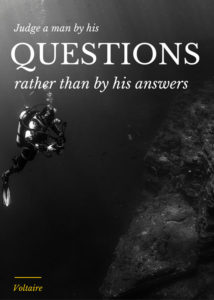The video embedded below is based on a discussion between Professor Emeritus Guy R. McPherson…
Responding to Thoughtful Questions
Details can be found immediately beneath the video embedded below.
On 3 August 2022, I received an email message from somebody new to me. The sender has been following my work, and was intelligently skeptical about my conclusions. He offered $100 for an hour of my time to respond to his questions. I agreed, largely because he was polite. The questions are posted below, and are also included in the resulting video.
1) You have often stated that the first ice-free Arctic summer will trigger a chain of events that will lead to human extinction. I do not have the total clarity on this that I would like. Therefore, would you kindly lay out, in detail, the sequence of events that will follow an ice-free Arctic and the projected timetables for those events?
2) Bill Nye, the Science Guy, visited you at your homestead in eastern New Mexico in September 2015 to do a filmed interview with you. You stated that, as his production crew was unpacking their equipment, Bill Nye volubly expressed his profound skepticism about your projection of human extinction by 2030. Then, you walked with him around your homestead for six hours, patiently explaining to him all the facts and data supporting your projection. Explaining so compellingly that, at the end of the day, Bill Nye said to you in a low voice: “2030. Don’t you think you’re being too conservative?” I understand that it was the sum total, the cumulative effect of all that you told him during those six hours that produced such a remarkable 180-degree turnaround in his thinking. But, in retrospect, were there any one/two/three things in particular that were most responsible for effecting this drastic turnaround?
3) You have stated recently that the Earth’s temperature has now risen at least, or more than, two degrees Celsius above the 1750 baseline temperature. The main source you cite is Professor Andrew Glikson. What is/are Prof. Glikson’s source/s? Are there other sources, particularly in scientific journals, for this assertion of a two-degree rise above the 1750 baseline? Is there anything like an official measuring station for measuring the global temperature rise the way that Mauna Loa is for measuring carbon dioxide levels in the atmosphere?
4) In your innumerable articles on global warming and human extinction you focus on the loss of habitat. There is very little focus on the calamitous events associated with global warming: a) heat waves of an intensity, duration, and frequency greater than anything we’ve experienced; b) monsoon-like rain events of an intensity, duration, and frequency greater than anything we’ve experienced; c) storms of an intensity, duration, and frequency greater than anything we’ve experienced. Your comment/s, please.
5) For illustration’s sake, I’m using the year 2100 canard. Using that time frame, I would think that things, environmentally, would get very bad in the 2060s; would get really, really bad in the 2070s; the wheels would be coming off in the 2080s; and all hell would be breaking loose in the 2090s.
Using the 2030 “drop dead” date, the 2020s are equivalent to the 2090s.
Having read all your articles and viewed all your oral presentations and read everything on Sam Carana’s website, among others as well as all the environmental news in the general media, I am well aware of the environmental tragedies occurring.
However, as bad as they may be, I would think, at this point in time, things would be a lot worse than they are.
I live in NYC, and have lived here for over 40 years. Overall, despite Hurricane Sandy in 2012 and brief record-per-inch two rain bursts we had late last summer, everything climatologically seems and has seemed, relatively normal.
If I did not know anything about global warming, much less all that I do know, I would think nothing out of the ordinary is occurring regarding global warming.
I know you have said that, to date, the effects of global warming have been ” unevenly distributed.” But, still, at this late date given your 2030 “Armageddon” projection, I would have thought that no part of the world would have still been spared the “environmental lash.”
In like vein, you have stated your surprise that this “set of living arrangements,” as you phrase it, has continued on. I would submit that these living arrangements have continued without even a significant interruption, much less brought to an end, is because environmental conditions have not yet gotten bad enough to bring about their demise.
In short, Professor McPherson, I would appreciate your comments about why there is still this degree of normalcy at this very late stage of the (climate) game.
Latest peer-reviewed journal article appears in the prestigious Elsevier series of journals:
McPherson, Guy R., Beril Sirmack, and Ricardo Vinuesa. March 2022. Environmental thresholds for mass-extinction events. Results in Engineering (2022), doi: https://doi.org/10.1016/j.rineng.2022.100342.

